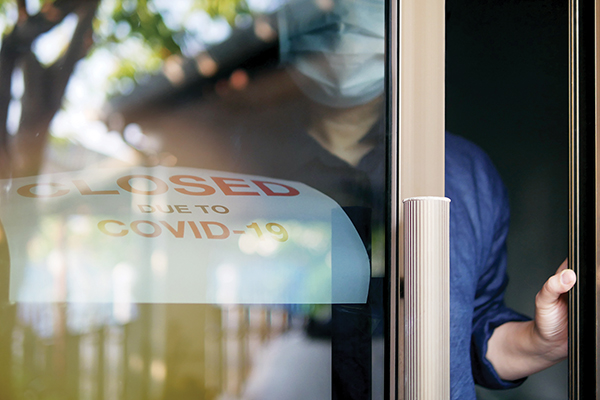A second survey of more than 1,600 NH businesses, conducted for the NH Small Business Development Center (SBDC), shows companies continue to deal with fallout from the pandemic, including temporary closures, reduced hours and decreased revenue.
Phase 2 of the Business Resiliency Survey was conducted with the University of NH’s Survey Center from Feb. 1-19, with responses from 1,611 businesses in 174 NH cities and towns. Much has changed for small business owners since the original survey was conducted in June 2020, and new questions have emerged regarding anticipated needs and challenges.
The good news is businesses are more confident than they were last year. Seven in 10 are confident the state’s economy will recover to pre-pandemic levels within 12 months.
Nearly half of respondents say their business has reduced hours of operation since the pandemic began, and one-third have closed temporarily. Half of those who closed temporarily say they did so for one to three months.
The average respondent’s business has just 12 employees. Nearly half say they have the same number of employees as they did in February 2020, while three in eight report having fewer employees.
Seventy percent of respondents say their monthly revenue decreased as a result of the pandemic, down from 83% in June 2020. Three in eight say their accounts receivable have been slower, down from nearly half in June, while a quarter report deferring or modifying their payments to vendors, also lower than in June.
Three-quarters of respondents say their business applied for financial relief in 2020, and just over half plan to apply for relief in 2021.
Only one in six respondents say their business had a resiliency or continuity plan prior to the COVID-19 pandemic, but another fifth of respondents say their business has developed one since.
Nearly two-thirds of respondents believe that resiliency planning will be very important or somewhat important to their business in the future.
One in five businesses have some employees working remotely, unchanged since June 2020, with larger businesses more likely to do so.
While 19% of respondents say that their business is better off financially than they were in June 2020, 35% say they are in about the same position financially, and 42% are worse off. Businesses in health care, social assistance and manufacturing are more likely to say they are better off.
As in June 2020, maintaining sales, revenue and customers are the biggest concerns of respondents during the recovery, followed by concerns about the availability of the COVID-19 vaccine for employees and public acceptance of the vaccine.
Majorities also are concerned about supply chain disruptions, access to capital, cybersecurity, timely payment of bills and energy costs.
Respondents frequently cited renewed access to customers, health and safety guidance, financial assistance and employees’ access to the vaccine as key to their business’s future.

